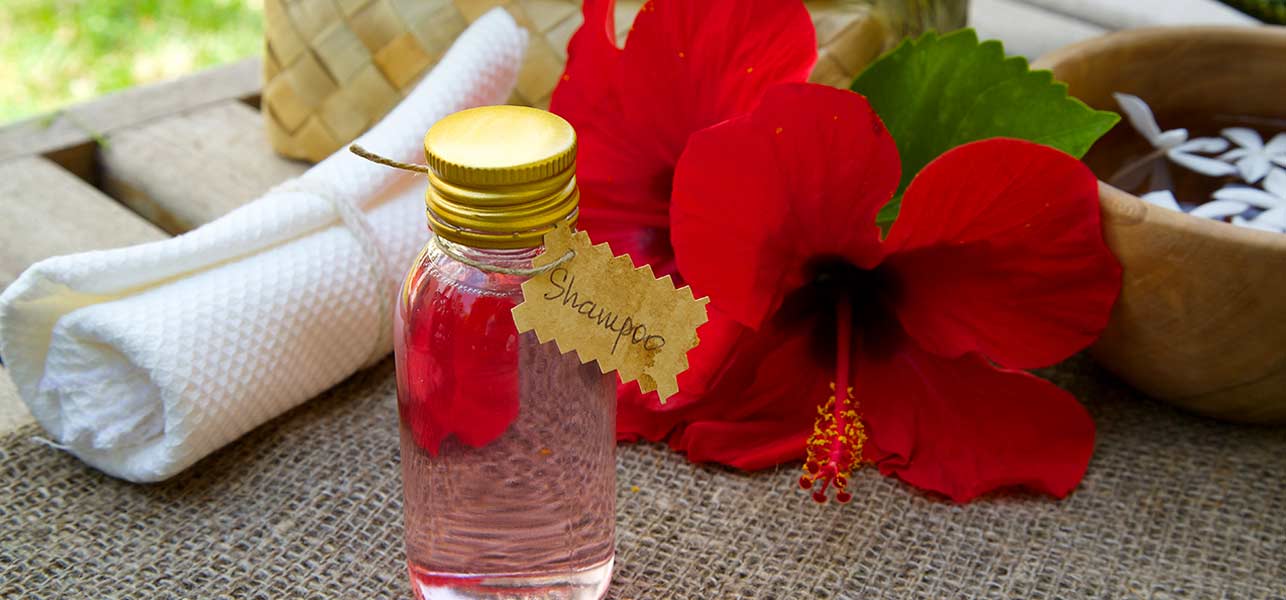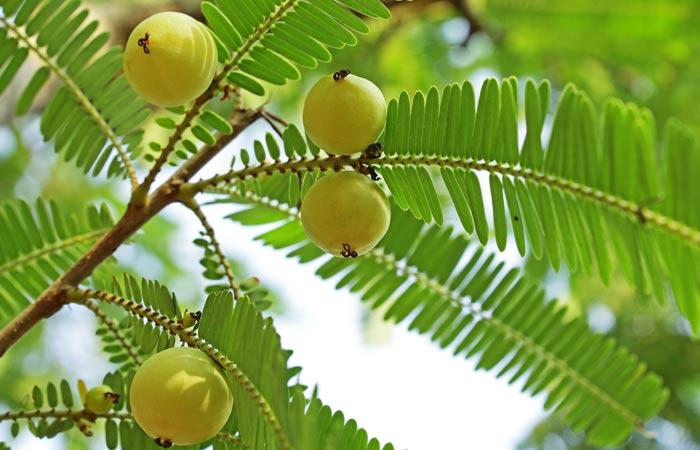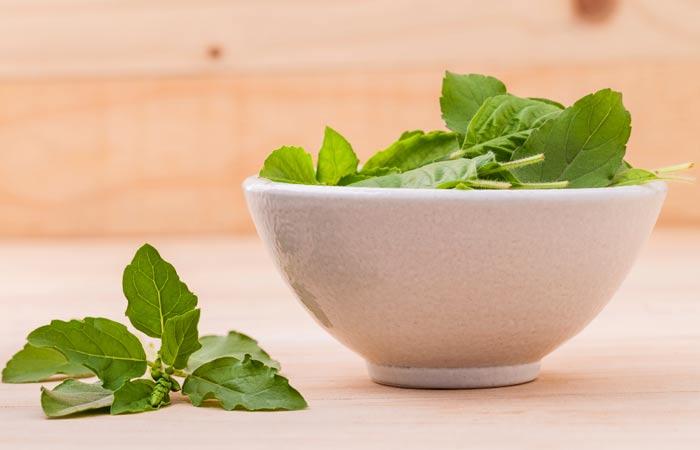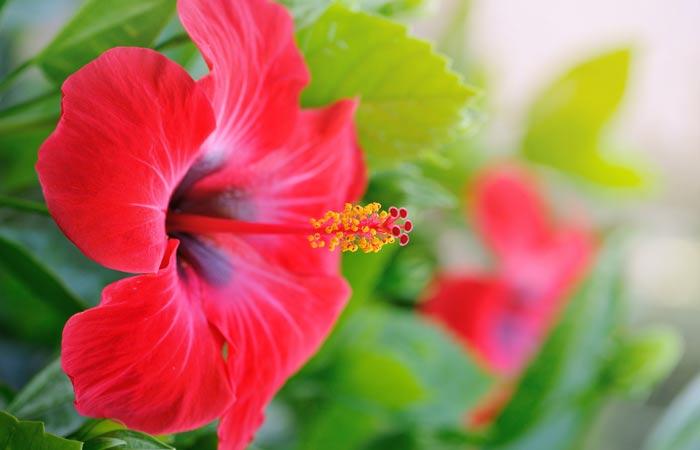Making your own hair oil at home may be comfortable and easy while comparing to getting one from stores. You might be worried of the chemical ingredients, artificial scents or other such preservatives present in the store bought hair oil.

You can never guess how it would react on your hair, but your natural homemade hair oil does no harm to your scalp or hair anytime. Not just single, many hair oil recipes can be made easily as per your hair problem such as hair loss, dandruff or even premature graying of hair. They might not be that good smelling or light like store bought hair oils, but of course, you can see much better results on your hair after you begin using these homemade hair oils. They do not contain any harmful ingredient, they are all natural and made by yourself. Today, let us check some interesting hair oil and ayurvedic hair oil recipes that you can prepare yourself at home and use to improve your overall hair health and beauty.



You can never guess how it would react on your hair, but your natural homemade hair oil does no harm to your scalp or hair anytime. Not just single, many hair oil recipes can be made easily as per your hair problem such as hair loss, dandruff or even premature graying of hair. They might not be that good smelling or light like store bought hair oils, but of course, you can see much better results on your hair after you begin using these homemade hair oils. They do not contain any harmful ingredient, they are all natural and made by yourself. Today, let us check some interesting hair oil and ayurvedic hair oil recipes that you can prepare yourself at home and use to improve your overall hair health and beauty.
1. Hibiscus Hair Oil For Hair Regrowth
Are you depressed by extreme hair loss? Are those bald patches showing off and spoiling your whole looks? Here’s a quick hair oil recipe for you. Hibiscus leaves and flowers are very beneficial for your hair growth and shine. They add life and shine to dull, damaged and weak hair. All you have to do is to pluck equal numbers of hibiscus flowers and leaves. Five numbers from each is enough for 100 ml of your carrier oil. Crush the leaves and fresh flowers without adding any water. Let the mixture be coarse, add this mixture to 100 ml of your carrier oil such as coconut oil, olive oil, etc. of your wish. You can also add a teaspoon of fenugreek and tulsi powder which are optional. Stir this whole oil mixture and heat it until it fumes. Switch off the stove and allow the oil to cool down. After cooling down, filter the oil and store it in an airtight container. This hair regrowth hair oil should be heated and used before every hair wash and left on your hair and scalp for one hour before rinsing hair. This homemade hair oil not only provides nourishment to your hair, but also prevents premature aging and provides thick, lustrous hair. Regular usage results in damage-free thick and long hair. Your hair always grows longer when it is not disturbed with falling or breakage, don’t you agree?
2. Refreshing Citrus Hair Oil For Dandruff
What is dandruff?
Dry and dead scalp flakes are called as dandruff. Dandruff is present in every scalp. Some might be invisible, while for a few people, it is highly visible, leaving an itchy feeling. Not just the itchy sensation it gives, but also spoils the entire health of your hair resulting in hair loss and root weakness. Even if you are healthy and maintain your hair properly, this dandruff can bring a severe hair loss problem. Hence, it should be cleared out continuously to prevent hair from falling.
How to prevent dandruff?
Citrus fruits like lemon and orange work great for removing dandruff from your scalp. Collect the peels of oranges and lemons, dry them until hard and powder them. A heaped teaspoon of powder should be mixed with 100ml of base oil and heated until it fumes. Allow the oil to cool down, filter and store in an airtight container. Massage your hair with this citrus hair oil once or twice every week followed by a hair steam. Your hair should be thoroughly cleansed with plenty of fresh water after this oil is allowed to sit on your scalp for 40 to 50 minutes. This hair oil extremely cures dandruff and prevents it from coming back with a refreshing citrus fragrance.
3. Amla Oil For Hair Loss

Amla or Indian gooseberry has been used widely in Ayurveda since the ancient ages. This fruit is rich in vitamin C, and its use can help you fight hair loss, make the hair darker and prevent premature graying. The use of coconut oil with amla helps hydrate the scalp and gives the hair a glow from within. You will need 100 grams of amla powder, 250 grams of virgin coconut oil, and 4 liters of water.
First, you will need to make a decoction. For this, add a third of the amla powder to the water and then boil it on low heat. Take a big container for boiling the amla powder in water. Stir the mixture constantly and wait till the amount of water gets reduced to 1 liter. After that, you will have to strain the mixture through a fine cloth. Now take the remaining amla powder and make a paste using water. Take a large pot. Pour the concentrated decoction, the paste, and coconut oil into it. Heat the pot and stir until the water gets evaporated. You may try burning the mixture on a stove to see if the water has evaporated. If it has not, there will be a cracking noise. Store the oil in a glass container and seal it properly. Use it twice a week or so for the best results.
4. Tulsi Hair Oil For Itchy Scalp

Tulsi is a herb used in Indian Ayurveda since ages. It is used for its decongestant properties to make cough medications mostly. However, you may use tulsi to make herbal hair oil that resolves a number of scalp problems. It can help resolve bumps on the scalp and itchy scalp, for example. When made with pure coconut oil, the Tulsi Ayurvedic oil can make the hair healthier, shinier, and you will have a healthy scalp too. You will require fresh tulsi leaves of tulsi leaves powder, virgin coconut oil, water, and fenugreek seeds.
Take a bunch of tulsi leaves or a few spoonfuls of tulsi powder. Make a thick paste using water and mixer/grinder if you are using leaves. Now pour 100 ml coconut oil in a bowl and add the paste to it. Put it on low heat and keep stirring. You may also add a few fenugreek seeds. Switch off the flame after some time and let the oil cool. Strain the prepared oil into a glass container. When you want to use the oil, warm it slightly and massage into the scalp using your fingers. Wait for 20 minutes and then rinse with a mild shampoo and water. You may apply this oil twice a week.



No comments:
Post a Comment